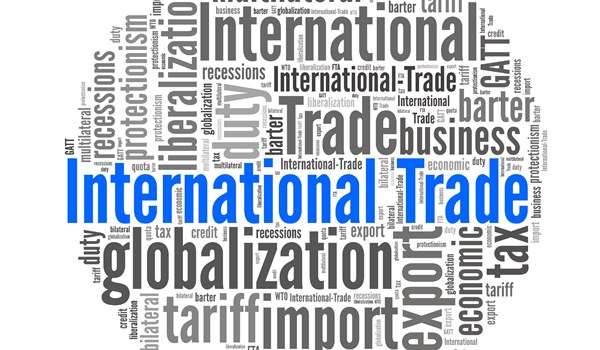India and Mauritius have signed the protocol amending their Double Taxation Avoidance Agreement (DTAA), which now incorporates the Principal Purpose Test (PPT). This provision serves as a criterion to determine the eligibility of foreign investors to avail benefits under the India-Mauritius DTAA.
The two countries signed the agreement in New Delhi, on March 7; however, it was publicly announced only on April 11, 2024. One of the highlights of this agreement is the inclusion of PPT, which will ensure that the tax avoidance benefit is only granted for transactions with a bona fide purpose. The move can be viewed as an attempt by the country to keep tabs on any treaty abuse or treaty-shopping treatment.
This would also mean that the foreign portfolio investments (FPI) will have to show that they are in conformity with all applicable laws, which include keeping a physical presence, hiring local employees, designating local directors, and carrying out all of their business in Mauritius.
The Base Erosion and Profit Shifting, or BEPS Action 6, addresses treaty shopping through treaty provisions whose adoption forms part of a minimum standard that members of the BEPS Inclusive Framework have agreed to implement. It also includes specific rules and recommendations to address other forms of treaty abuse. Action 6 identifies tax policy considerations that jurisdictions should address before deciding to enter into a tax agreement.
In September 2015, the Organisation for Economic Co-operation and Development (OECD) released the final report on Action 6. On March 20, 2024, the latest peer review report was released assessing jurisdictions’ efforts to prevent tax treaty shopping and other forms of treaty abuse under Action 6 of the OECD/G20 BEPS Project.
Reserving DTAA benefits
The preamble of the India-Mauritius DTAA defines the goals of tax treaties to extend beyond the abolition of double taxation and include preventing double non-taxation or reduced taxation, as well as preventing people from third countries from improperly using the treaty.
India-Mauritius DTAA, Chapter 5, Article 27A of the agreement specifies:
LIMITATION OF BENEFITS (LOB)
A resident of a Contracting State shall not be entitled to the benefits of Article 13(3B) of this Convention if its affairs were arranged with the primary purpose to take advantage of the benefits in Article 13(3B) of this Convention.
A shell/conduit company that claims it is a resident of a Contracting State shall not be entitled to the benefits of Article 13(3B) of this Convention. A shell/conduit company is any legal entity falling within the definition of resident with negligible or nil business operations or with no real and continuous business activities carried out in that Contracting State.
A resident of a Contracting State is deemed to be a shell/conduit company if its expenditure on operations in that Contracting State is less than Mauritian rupees 1,500,000 (US$31,950) or Indian rupees 2,700,000 (US$32,292) in the respective Contracting State as the case may be, in the immediately preceding period of 12 months from the date the gains arise.
A resident of a Contracting State is deemed not to be a shell/conduit company if:
(a) it is listed on a recognized stock exchange of the Contracting State; or
(b) its expenditure on operations in that Contracting State is equal to or more than Mauritian rupees 1,500,000 (US$31,950) or Indian rupees 2,700,000 (US$32,292) in the respective Contracting State as the case may be, in the immediately preceding period of 12 months from the date the gains arise.
Explanation: The cases of legal entities not having bona fide business activities shall be covered by Article 27A(1) of the Convention.
PPT clause to counter tax avoidance loophole
India’s Income Tax Department is awaiting ratification of the clarification issued on the India-Mauritius DTAA protocol from the Central Board of Direct Taxes (CBDT). The need for clarification comes from concerns over the increased scrutiny by tax authorities on investments made via Mauritius. Specifically, concerns have been raised about the investments that were made prior to the enactment of the protocol under Section 90 of the Indian Income-tax Act, 1961.
The PPT is a part of Article 7 (Prevention of Treaty Abuse) of the Multilateral Instrument (MLI). Once both contracting jurisdictions—the nations that make up the double tax treaty—have ratified the MLI, the PPT amends the double tax treaty.
As of January 17, 2024, there are 102 signatories to the MLI. This could have a major effect on a company group’s ability to manage and lower cross-border taxes, such as withholding tax, by relying on double tax treaties. Without requiring bilateral talks between nations, the MLI is anticipated to have an impact on the interpretation of over 1600 tax treaties that are used.
Mauritius was one of the top choices as an investment destination for decades, since the country offered non-taxable capital gains. However, the tax agreement was revised in 2016, and India was able to tax capital gains on share transactions that went through Mauritius, starting on April 1, 2017. Prior to this, investments were grandfathered in.
In India, tax experts believe that the concerned authorities will probably “look beyond” the tax residence certificate (TRC) that Mauritius authorities provide and shall have the authority to refuse parties’ access to the benefits of the India-Mauritius treaty on an individual basis.
Article 27B: Understanding entitlement to claim benefits
As per the previous India-Mauritius treaty, the tax on gains from the alienation of shares that occur between April 1, 2017, and March 31, 2019, cannot be greater than 50 percent of the tax rates that apply to such gains in the state where the firm whose shares are being alienated is headquartered.
Since capital gains were not taxed in Mauritius, several businesses were established there to take advantage of the tax provisions under the DTAA. The 2017 DTAA amendments, however, altered the situation by giving India the authority to tax capital gains from the sale of shares made in its territory by a company that is registered in Mauritius.
The DTAA between the two nations was renegotiated to contain a Limitation of Benefits, or LOB clause, which specifies that the benefit will not apply to citizens of the contracting state if its affairs are principally established for taking advantage of the benefit of this treaty, in order to combat misappropriation of this benefit. The benefits are only granted to legitimate Mauritius citizens, discouraging the establishment of shell or conduit firms for the purpose of tax evasion.
The recently added “Article 27B Entitlement to Benefits” protocol in the India-Mauritius DTAA can deny a benefit if an entity has entered into an arrangement or transaction without a bona fide purpose. The clause says that the DTAA benefit can be given if an entity enters into a transaction or arrangement in line with the original object and purpose of the convention, which is to further investment.
Mauritius aligns with OECD proposal on BEPS
On February 23, the Mauritius government decided to amend its DTAA with India to better align with the OECD proposal on BEPS. Mauritius signed the Multilateral Convention to implement the Tax Treaty Related Measures to prevent Base Erosion and Profit Shifting MLI on July 5, 2017. However, the MLI only applies to tax treaties that are ‘Covered Tax Agreements’ (‘CTA’).
Conclusion
The India-Mauritius DTAA first came into effect on April 1, 1983, and was later modified by a protocol signed on May 10, 2016. The modified agreement added a clause on the LOB as well as significantly improved source country taxation rights in addition to provisions pertaining to the Exchange of Information (EOI) and Assistance in Collection of Taxes.
The provision of taxation rights to the source country with regard to capital gains on the sale of shares acquired on or after April 1, 2017, was one of the major amendments. Investments made before April 1, 2017, however, were grandfathered, meaning that only the resident country had the exclusive right to tax gains on the alienation of shares.
With the latest DTAA amendment in place, entities with their headquarters in Mauritius will now need to comply with the Principal Purpose Test mandate, which means they will need to provide evidence that the Mauritian corporation is a fully operational, staffed business and not just a shell company.



